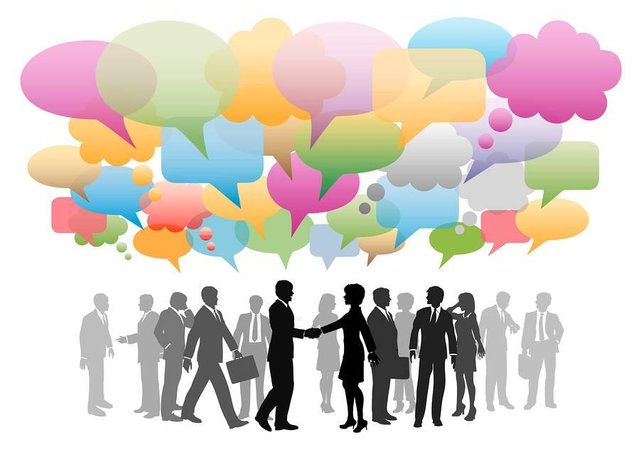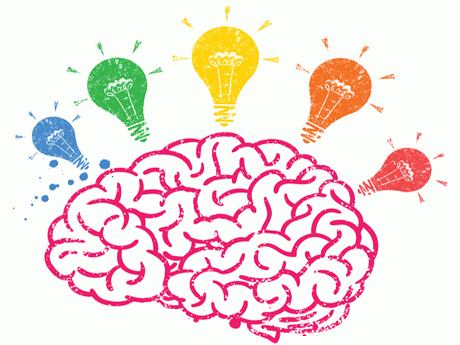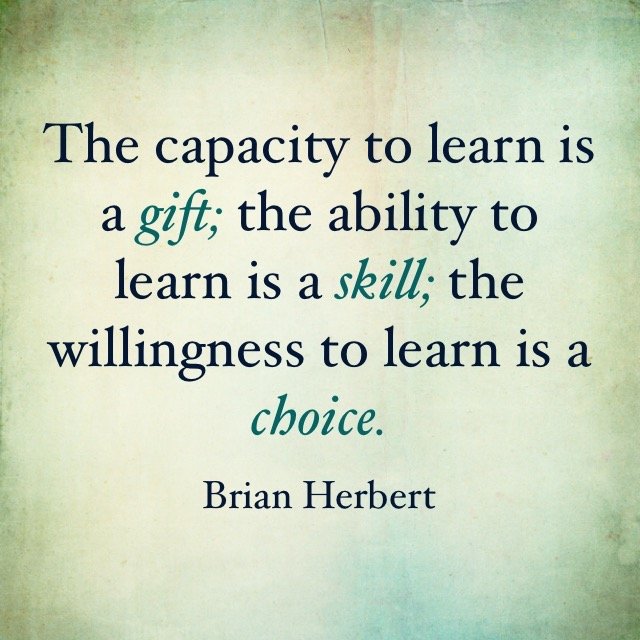Interesting Facts About The Sources of Social Knowledge
Interesting Facts About The Sources of Social Knowledge

Image Source
People have substantial brains and exceedingly created cognitive limits. In this way it will not shock anyone that we address the difficulties that we confront in regular day to day existence to a great extent by considering them and afterward arranging what to do about them. After some time, individuals build up a tremendous measure of knowledge about the self, other individuals, social connections, and social gatherings. This knowledge manages our reactions to the general population we connect with consistently.
Our Knowledge Accumulates as a Result of Learning
Individuals have numerous recollections about their encounters with other individuals, and they utilize this data to make expectations about what individuals will do later on. This knowledge is increased through learning. The investigation of learning is nearly associated with the behaviorist school of psychology, which incorporates the psychologists John B. Watson and B. F. Skinner. For behaviorists, the central part of learning is the way toward molding, the capacity to interface boosts with reactions.
The behaviorists portrayed two sorts of molding that are especially imperative in behaviorism: operant molding and traditional molding. At the point when connected to human behavior, these two procedures are every now and again called, individually, operant learning and associational learning.
Operant Learning
On the off chance that a youngster touches a hot radiator, she rapidly discovers that the radiator is perilous and is not prone to touch it once more. In the event that we have unpalatable encounters with individuals from a specific state or nation, or a constructive association with a man who has blonde hair or green eyes, we may create antagonistic or uplifting demeanors about individuals with these specific qualities and endeavor to decrease or increment our communications with them.
These adjustments in our comprehension of our surroundings speak to operant learning, the rule that we learn new data because of the results of our behavior. As indicated by operant learning standards, encounters that are trailed by positive feelings are probably going to be rehashed, while encounters that are trailed by negative feelings are less inclined to be rehashed. In operant learning, the individual gains from the results of his or her own behavior.
In spite of the fact that its standards are extremely straightforward, operant learning is presumably the most essential type of human learning. Operant learning happens when a schoolroom spook debilitates his colleagues in light of the fact that doing as such enables him to get his direction, when a youngster gets decent evaluations since her folks undermine to rebuff her on the off chance that she doesn't, when we start to like somebody who grins at us much of the time, and in many different cases each day.
Operant learning can likewise be utilized to clarify how individuals learn complex behaviors, for example, how to peruse, and to comprehend complex social behaviors, for example, the improvement of social standards and culture. The use of operant learning to social psychology is clear: How would we know which behaviors are most fitting in a social circumstance? We learn, to a limited extent, since we have decidedly fortified for participating in the fitting ones and adversely strengthened for taking part in the unseemly ones.
It doesn't take us long to discover that Margette will probably give us the kiss we have been seeking after on the off chance that we are decent to her or that our youngsters will probably share their toys with others in the event that we compensate them for doing it. Operant learning has even been utilized to clarify why a few people move toward becoming culprits. As per this approach, criminal behavior is controlled by the fortifications and disciplines that the individual encounters because of his or her behavior.

Image Source
Associational Learning
Associational learning happens when a question or occasion comes to be associated with a characteristic reaction, for example, a programmed behavior or a positive or negative feeling. In the event that you've at any point end up plainly hungry when you drive by one of your most loved pizza stores, it is presumably on the grounds that seeing the pizzeria has progressed toward becoming associated with your encounters of getting a charge out of the pizzas. We may appreciate smoking cigarettes, drinking espresso, and eating since they give us joy themselves as well as on the grounds that they have been associated with lovely social encounters previously.
Associational learning likewise impacts our knowledge and judgments about other individuals. For example, inquire about has demonstrated that individuals see men and ladies who are seen close by other individuals who are appealing, or who are said to have alluring sweethearts or beaus, more positively than they do similar individuals who are seen nearby more normal looking others. This loving is because of associational learning, we have constructive emotions toward the general population essentially on the grounds that those individuals are associated with the positive elements of the alluring others.
Associational learning has for some time been, and keeps on being, a powerful device in showcasing and promoting. The general thought is to make a promotion that has constructive components so it makes happiness in the individual presented to it. Since the item being promoted is specified in the advertisement, it moves toward becoming associated with the positive sentiments that the promotion makes. At last, if everything has gone well, seeing the item on the web or in a store will then make a positive reaction in the purchaser, driving him or her to probably buy the item.
Another kind of advertisement that depends on standards of established molding is one that partners fear with the utilization of an item or behavior, for example, those that show pictures of fatal car crashes to support safety belt utilize or pictures of lung malignancy surgery to debilitate smoking. These advertisements have likewise been observed to be successful to a great extent in view of molding.
Associational learning is additionally embroiled in the advancement of uncalled for and unjustified racial preferences. We may disdain individuals from certain racial or ethnic gatherings since we every now and again observe them depicted in the media as associated with brutality, medicate utilize, or psychological oppression. What's more, we may maintain a strategic distance from individuals with certain physical qualities just on the grounds that they help us to remember other individuals we don't care for.

Image Source
Observational Learning
Notwithstanding operant and associational learning, individuals learn by watching the behavior of others. This is known as observational learning. To show the significance of observational learning in kids, Bandura and Walters made a film of a young lady thrashing a bobo doll, an inflatable with a weight in the base that makes it sway move down when you thump it down. The lady brutally hit the doll, yelling "sockeroo!" She additionally kicked it, sat on it, and hit it with a sledge. Bandura demonstrated his film to gatherings of nursery school youngsters and after that let them play in a room in which there were some truly fun toys.
To make some dissatisfaction in the kids, Bandura let the youngsters play with the fun toys for just a few minutes before taking them away. At that point Bandura allowed the youngsters to play with the bobo doll. You most likely won't be astounded to hear that a hefty portion of the youngsters imitated the young lady in the film. They punched the bobo doll, yelled "sockeroo," and hit the doll with a mallet.
For a portion of the youngsters, the female model was indicated being remunerated for taking part in the behavior, and for other kids, she was rebuffed. In help of the standards of operant learning, Bandura's investigation discovered that the youngsters will probably be forceful when the model had been remunerated for the behavior and were more averse to be so when the model had been rebuffed.
Be that as it may, even the youngsters who did not see the model get any reward by and by imitated the behavior to some degree. One of the real commitments of this examination is the exhibit that youngsters adapted new sorts of forceful behaviors essentially by watching and emulating others.
Observational learning is included in quite a bit of our learning about our social universes. Observational learning shows us that Hank is agreeable, that Joanna is childish, and that Frankie really likes Malik. In different cases, our knowledge comes all the more in a roundabout way, from what we read in books or see on TV, or from what our companions let us know, for example.
Observational learning is valuable since it enables individuals to learn without having to really take part in what may be an unsafe behavior. As Bandura put it, the prospects for survival would be thin in fact in the event that one could learn just by misery the outcomes of experimentation. Thus, one doesn't instruct youngsters to swim, youths to drive cars, and fledgling medicinal understudies to perform surgery by having them find the suitable behavior through the results of their triumphs and disappointments.
The all the more exorbitant and perilous the conceivable mix-ups, the heavier is the dependence on observational learning from able learners.

Image Source

Reference:
Social Psychology Principles
By: Charles Stangor
Interesting artice as always, keep up, good posts :)
Thanks
Very interesting.... some of the jargon had me re-reading things though lol
Glad you like it
Great post learned some things new informative post keep sharing waiting for next post thumbs up for this post keep sharing man :)
Thanks for the compliment
you're welcome dear check out my post hope you may like it :)
https://steemit.com/bitcoin/@farhanali/5-things-you-probably-don-t-know-about-bitcoin
Just done checking your post and decided to follow you :)
I like your post thank you for sharing.
Glad you like it
I am glad @rynow told me to follow you he said I would like your content because we write about the same type of things. You can have a look at some of my previous posts maybe you will find them interesting as well. Have a good day.
Thanks. You have an interesting content too. Following
This post has received a 26.77 % upvote from @booster thanks to: @juvyjabian.